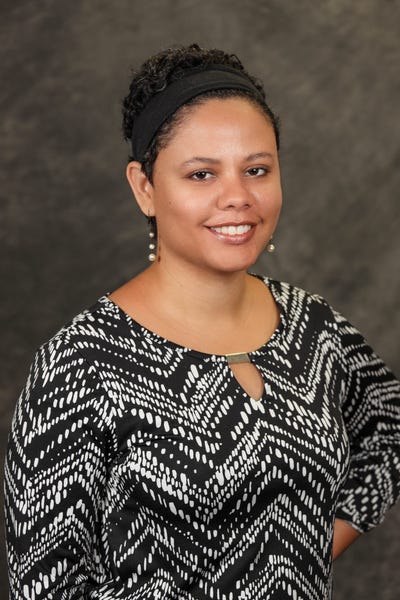Accenture CEO Julie Sweet Talks Hybrid Work, Metaverse at Gartner EventAccenture CEO Julie Sweet Talks Hybrid Work, Metaverse at Gartner Event
“The metaverse is going to be as profoundly impactful as digital,” she said.
October 18, 2022
GARTNER IT SYMPOSIUM/XPO — When high school students ask Accenture CEO Julie Sweet what they should study in college, she gives the same resounding answer: “Major in what you like.”
However, she adds a caveat:
“Take a technology class.”
It’s what one might imagine the CEO of one of the world’s most powerful consulting companies would say.
Majoring in whatever interests a student promotes curiosity and learning. That’s what Sweet told the audience during the Tuesday keynote at the Gartner IT Symposium/Xpo in Orlando, Florida.
Before Sweet (pictured on stage above) became CEO, she was general counsel for Accenture. And before that, she was a partner at Cravath, Swaine & Moore, one of the longest established law firms in the U.S. Sweet applies the learning agility and decision-making skills she garnered back in law school to her role as CEO.
And she has a lot of decisions to make.
Hybrid Work
As a global professional services company, Accenture has more than 721,000 people on its payroll. Put differently, Sweet manages more people than Microsoft, Google and Tesla combined.
What characteristic do she and her hiring team look for in future employees?
The answer isn’t surprising.
“What we’re looking for are people who like to learn… you know the first six months after the pandemic we retrained 100,000 to meet the demand,” Sweet said. “And so in every part of Accenture, we have people who are learners. And we believe that’s true for all companies, as it’s a critical skill when you hire.”
However, remote work doesn’t allow for the most optimal learning conditions. According to Sweet, the second least-engaged employees were those who worked remotely. (The least engaged were those who went to the office full time.)
What Accenture learned from the pandemic was that the most engaged employees were those who embraced the hybrid model.
Yet, hybrid work is more than just a way of working. It’s a mindset.
“Everyone at Accenture should feel like they are better off because they work here … so the pillars of that strategy are not about hybrid working. It’s about whether people have well-being from a physical, mental and financial standpoint,” Sweet said.
As part of that corporate evolution, Accenture hired its first chief health officer last year.
The Metaverse
When it comes to firsts, the company has always been an early adopter of groundbreaking technology.
Sweet had much to say about AI and the metaverse.
“As you see the move to the cloud, the understanding of what has to happen around data has become clear,” Sweet said. “We start to see major companies really taking on building data platforms. And along with that is the ability to unlock AI at scale.”
She added: “The potential of AI is tied to the fact that you need to have data at scale. And companies are still very early in that journey.”
Sweet spoke to an audience primarily of CIOs and digital leaders still grappling with what to make of the metaverse, which is enabled by AI.
Although Accenture uses the metaverse with clients in manufacturing and utilities, the company also incorporates the virtual world in its onboarding and training. It does so as well with meetings and collaboration.
“During the pandemic, when we could bring clients to our innovation hubs, we did it in the metaverse,” Sweet said. “For the next iteration of our own metaverse, we’re actually launching a diversity fair, bringing our employee resource groups together to learn about each other.”
For Accenture, the metaverse has meant joining with companies like Google and Microsoft to create a universal wallet to be able to do commerce in that virtual ecosystem.
“The metaverse is going to be as profoundly impactful as digital,” she said.
Want to contact the author directly about this story? Have ideas for a follow-up article? Email Claudia Adrien or connect with her on LinkedIn. |
Read more about:
VARs/SIsAbout the Author
You May Also Like


